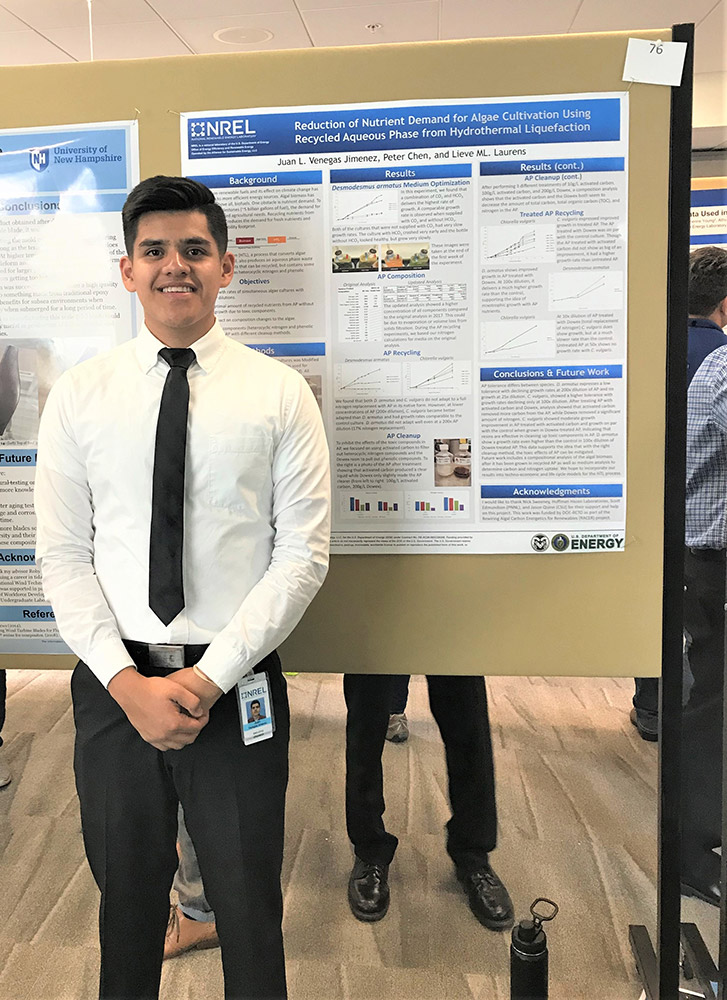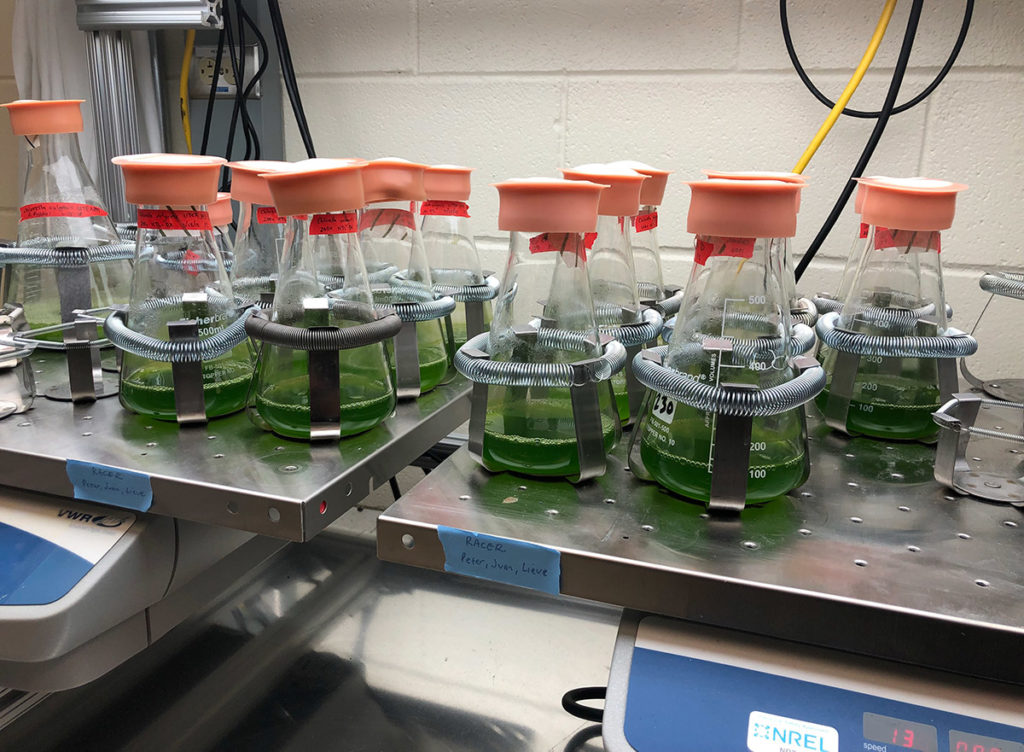For chemical and biological engineering student Juan Venegas, being the first in his family to attend college could be intimidating, especially when his first internship was at a major national lab. With strong support from faculty and lab staff, the experience turned into an invaluable opportunity to grow as an engineer.

Venegas’ internship this summer took him to the National Renewable Energy Laboratory (NREL), where he was a part of an interdisciplinary team working on the RACER biofuel project. The project unites members from Colorado State University, NREL, Colorado School of Mines, Arizona State University, and representatives from industry, to improve production of algae-based biofuels.
Jason Quinn, associate professor of mechanical engineering and a member of the project’s research team, believes that an undergraduate internship at a respected lab like NREL is a priceless experience for students like Venegas.
“The national labs typically host students towards the latter part of their degree,” Quinn said. “It is unique for a freshman to be involved with a large project such as this at a national lab.”
Real-world experience in the lab
At NREL, Venegas obtained a grounding in lab procedures and real-world applications, but in the beginning the experience was daunting. Without college insights from family to fall back on, the internship was an uncharted path.
“My first few days at NREL were intimidating, because it was such a big place,” Venegas said. “I felt like I needed to do everything right or else. But everyone was incredibly nice, and wanted to help and support me.”
With great support from faculty and staff at the lab, Venegas flourished in his work. He worked with the algae cultures needed to accomplish one of the team’s main goals, which was to reduce the amount of fresh nutrients needed for each culture by reusing nutrients.

Venegas worked with different algae cultures to find methods for increasing nutrient recycling. He learned how to inoculate cultures and grow them in different environments and waste concentrations.
Working with project data
Part of his internship also included keeping track of the cultures through spreadsheets. He learned how to work with the data to show the impact of the results, combining the information into practical reporting.
His diligent reporting led to him being one of the listed authors on an academic research paper emerging from the project this semester.
“Being a first-generation student, you don’t really know what to look forward to in college,” Venegas said. “I’m very excited to get an internship and my name on a paper as an undergraduate.”